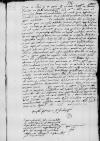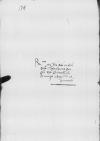List #2135
Ioannes DANTISCUS do Tiedemann GIESEHeilsberg (Lidzbark), 1539-04-20
Regest polski:
Dantyszek otrzymał list Giesego. Martwi się wieścią o jego chorobie. Rozbawiły go natomiast absurdalne żądania wojewody chełmińskiego [Jana Luzjańskiego] co do terminu i miejsca zbliżającego się sejmu [pruskiego]. Wojewoda, który nie zwykł pojawiać się na sejmach, dba jedynie o to, by ludzie, za których pośrednictwem ma zamiar zadbać o własne interesy, mieli blisko do miejsca obrad (dlatego też akceptuje Grudziądz), nie biorąc pod uwagę ani realnych możliwości organizacyjnych, ani bezpieczeństwa od zarazy.
Dantyszkowi podobają się natomiast propozycje Giesego i pozostałych [członków Rady Pruskiej]. Ze względu na chorobę Giesego zamierza nazajutrz posłać do króla [Zygmunta I] z prośbą o przesunięcie terminu sejmu do 15 czerwca, a także o pozostawienie wyboru miejsca obrad członkom Rady. Nawet jeżeli zaraza wcześniej ustąpi z Malborka, zdaniem Dantyszka nie będzie korzystne, by sejm obradował pod nieobecność Giesego.
Dantyszek przyjmuje ze zrozumieniem fakt, że choroba uniemożliwia Giesemu bardziej szczegółową odpowiedź na jego list.
Dantyszek uważa, że należy zawiadomić miasta i innych [członków Rady Pruskiej], że sejm w Malborku się nie odbędzie, i że oczekiwana jest decyzja królewska w sprawie zmiany miejsca i terminu. Obiecuje zawiadomić o tym radę Elbląga i radę Gdańska.
Rękopiśmienne podstawy źródłowe:
Publikacje:
| ||||||
Tekst + aparat krytyczny + komentarz Zwykły tekst Tekst + komentarz Tekst + aparat krytyczny Ekscerpty dotyczące podróży Dantyszka
Reverendissimo in Christo Patri et Domino, domino
Reverendissime in Christo Pater et Domine, frater et amice carissime ac honoran(de) or honoran(dissime)⌈honoran(de)honoran(de) or honoran(dissime)⌉.
Salutem et fraternam commendationem.
cf.
De instantis
Quod autem alii cum Dominatione Vestra Reverendissima sentiunt, gratum mihi est neque, si etiam in
Quod vero Dominatio Vestra Reverendissima se excusat se mihi in praesenti respondere ad singula non potuisse, libenter admitto, ipse enim superiori anno expertus sum superinscribed⌈sumsum superinscribed⌉, quid aegritudo possit. Ex qua ut Dominus Deus Dominationem Vestram Reverendissimam, et cito, liberet, summopere mihi est in votis. Quam convalere et pristinae incolumitati restitui aveo revera ex animo.
Dat(ae) or Dat(um)⌈Dat(ae)Dat(ae) or Dat(um)⌉
Eiusdem Reverendissimae Dominationis Vestrae frater studiosissimus
Postscript:
Significandum esset civitatibus et aliis


 BCz, 245, p. 174
BCz, 245, p. 174